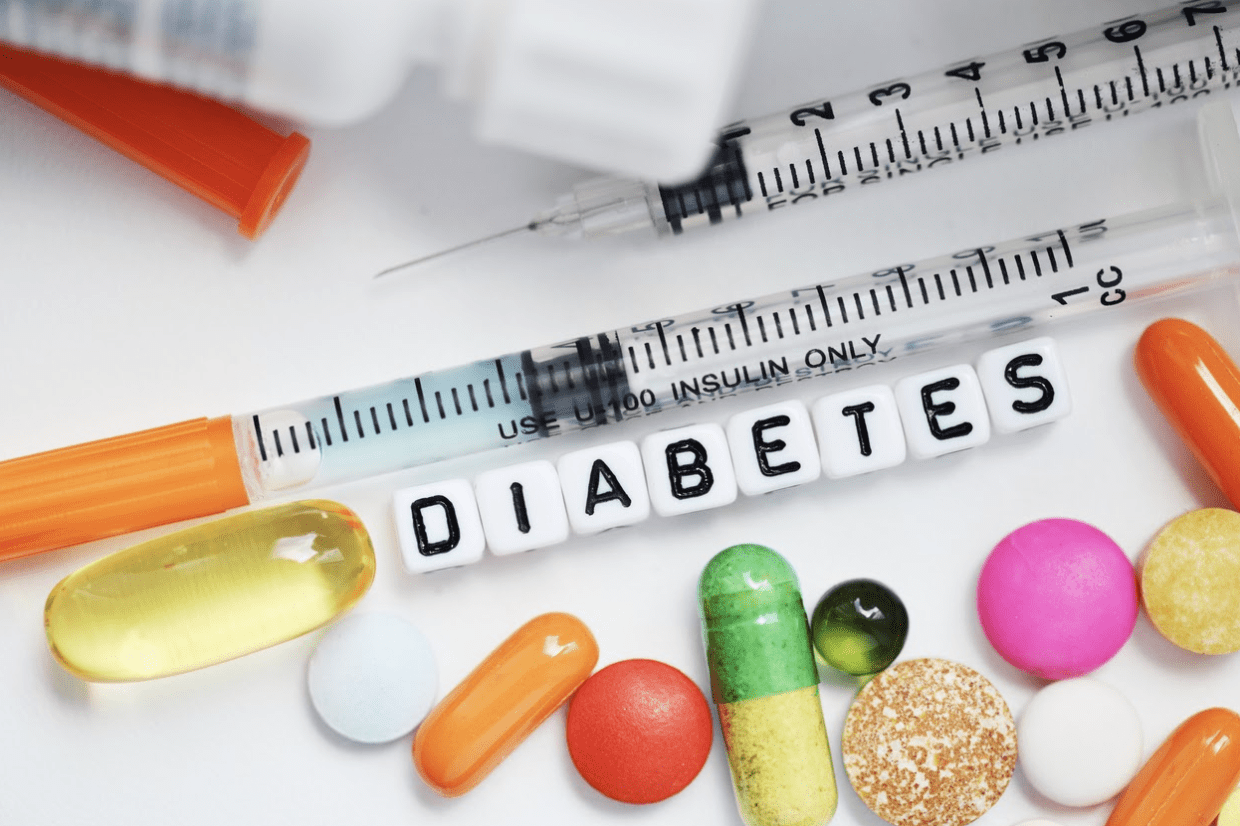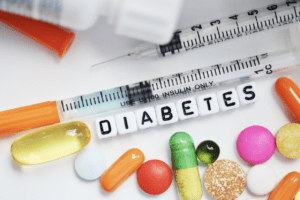Can You Get a CDL with Diabetes? Everything You Need to Know About Diabetic Truck Drivers
If you want to be a trucker but you have or are at risk for diabetes, you have probably wondered, “Can diabetics be truck drivers? Can you get a CDL with type 1 diabetes or type 2 diabetes?” The short answer is yes, but there are certain regulations that you need to be aware of first. Luckily we’re here to help you navigate this complicated topic with ease.
Table of Contents:
- Can Diabetics Be Truck Drivers?
- Diabetic Health Risks for Truckers
- Being a Trucker with Diabetes: Our Best Tips
- Frequently Asked Questions
- We Can Help You Drive Trucks, Even With Diabetes
Can Diabetics Be Truck Drivers?
As we said already, the answer to whether diabetics can become truck drivers is somewhat confusing, partly because of the long history of restrictions for truckers with diabetes.
The History of Diabetic Truck Drivers
For many years, by US law, people were not allowed to be truck drivers if they had diabetes and needed insulin, regardless of the type of diabetes or the severity of their symptoms. This law applied both to prospective and current truck drivers, resulting in a loss of income for many truck drivers who became diabetic later in life.
Fast forward to 2003, and the Federal Motor Carrier Safety Administration (FMCSA) created a Diabetes Exemption program. This program allowed truck drivers with diabetes who met certain criteria to get or keep their jobs.
The Diabetes Exemption program was a great step forward for truckers with this chronic illness, but was unfortunately somewhat ineffective. Truckers with insulin-dependent diabetes had to apply to the program by completing an application with FMCSA, a process that could take months. For people already working in the trucking industry, this process was particularly frustrating because they were not allowed to continue at their jobs while applying for the exemption, resulting in the loss of several months’ income.
The Diabetes Exemption program ended in 2018, and the FMCSA has created a new and more effective system for granting medical certifications to truckers with diabetes.
Today’s Rules Around Diabetes and Truck Driving
Under the Federal Motor Carrier Safety Administration’s new laws, current and future truck drivers with insulin-dependant diabetes no longer need to apply for the FMCSA’s Diabetes Exemption program in order to be truckers.
Instead of applying for medical certification through the FMCSA, truckers now instead visit a FMCSA-certified medical examiner. This medical examiner will work with the trucker’s physician to decide whether or not to issue a medical certificate that would allow the truck driver to operate a commercial motor vehicle in interstate traffic for up to a year. After that year, the medical certificate would need to be renewed for the truckers to keep their CDL license.
The same rules apply to truckers who have diabetes and do not require insulin, though it is generally easier to prove that you are fit to drive a truck.
Diabetic Health Risks for Truckers
The good news is more diabetics can become truck drivers than ever before. The bad news is that truck drivers are still at very high risk for diabetes.
Compared to the national average, truckers have a 50% higher risk for developing diabetes. This is likely because many truck drivers work long hours and spend most of their on-duty time sitting down. It also can be challenging for truckers to eat healthy when you’re on the road, as they don’t necessarily know when they’ll have access to a grocery store or even a microwave. This uncertainty leads many truck drivers to live off fast or truck stop food.
Diabetes is a difficult chronic illness for everyone, but truck driving presents additional challenges for people with diabetes. In addition to the challenges of getting enough exercise and eating balanced meals, diabetic truck drivers have to deal with other potential obstacles, such as remembering to refill their medications before hitting the road and regularly testing their blood sugar levels.
It’s crucial for truck drivers with diabetes to prioritize managing their symptoms. Certain health complications that can result from diabetes will immediately rule out truck drivers from being given medical certificates. Peripheral neuropathy is one of these diagnoses, as this condition results in the loss of sensation in the hands or feet, posing clear dangers to both the truck driver and any other vehicles on the road.
With proper management of diabetes, drivers can greatly minimize their risk of these complications developing.
Being a Trucker with Diabetes: Our Best Tips
Although it is possible to become a trucker as long as you obtain a medical certification, being a diabetic truck driver requires extra care. It can be challenging to prioritize your chronic illness while on the road.
While you should always consult with your physician about managing your diabetes as a trucker, here are a few ideas to help you be a successful truck driver with diabetes:
- Increase physical activity. Try to make time for quick exercises that don’t require much time or equipment, such as planks or crunches. Even walking around a truck stop parking lot several times is far better than sitting idle in your truck.
- Plan your meals ahead of time. Try to pick out places to stop during your meal times where you know there will be a grocery store or truck stop with healthier options. If possible, travel with a small cooler or fridge so that you can stock snacks such as yogurt, berries, and hummus.
- Organize your medications before a trip. Don’t be caught off-guard in the middle of nowhere and realize you didn’t pack enough insulin, or that you need a refill of a medication.
- Find a physician or clinic who can be seen virtually. If you find a medical provider willing to see you by phone or video chat, you can receive medical advice from someone who knows your medical history even from several states away.
Frequently Asked Questions
Can You Get a CDL with Type 1 Diabetes?
Yes, you can still get your CDL with type 1 diabetes! But there is an extra step you’ll have to take.
Because type 1 diabetes is managed with insulin, you’ll need to get an FMCSA Insulin-Treated Diabetes Mellitus (ITDM) Assessment Form (MCSA-5870) filled out by your doctor. The good news is that since November 2018, FMCSA looks at each driver individually instead of having a blanket ban on diabetes.
Here’s what you’ll need to show:
- Your insulin routine is stable and working well for you
- You’re keeping your diabetes under good control
- You haven’t had any serious low blood sugar episodes recently (like losing consciousness or having seizures)
Can You Have a CDL with Type 2 Diabetes?
Just like diabetics who have type 1 diabetes, you can have a CDL with type 2 diabetes as long as you satisfy the FMSCA’s additional requirements.
If you don’t take insulin to manage your type 2 diabetes, the DOT physical process is typically more straightforward. You’ll just need to show that:
- Your blood sugar levels are well-controlled
- You don’t have complications that could affect your driving safety (like vision problems or nerve damage in your hands and feet)
If you do use insulin for your type 2 diabetes, you’ll follow the same process as type 1 diabetics outlined in the previous question—getting an FMCSA Insulin-Treated Diabetes Mellitus (ITDM) Assessment Form (MCSA-5870) completed by your doctor. By contrast, you can see that the FMCSA Non-Insulin-Treated Diabetes Mellitus Assessment Form (MSCA-5872) is a little less involved.
Can You Drive a Semi with Diabetes?
Absolutely! Drivers with both type 1 and type 2 diabetes can get behind the wheel of a semi truck as long as they meet the FMCSA requirements.
Here’s what matters most:
- You haven’t had any serious low blood sugar episodes recently
- Your diabetes is stable and well-managed (your doctor will confirm this)
- If you use insulin, you’ll need the ITDM Assessment Form (MCSA-5870)
Don’t let diabetes stop you from considering a career that could change your life. What matters is that you’re committed to safety and ready to learn.
Many of our graduates with diabetes are now earning great money with excellent benefits, working for top carriers across the country. They’re living proof that diabetes doesn’t have to limit your career options.
Can You Take Insulin and Have a CDL?
Yes, it is possible to take insulin and have a CDL. Using insulin does not necessarily disqualify you from getting or keeping your CDL. You just need to follow FMCSA’s diabetes guidelines.
Here’s what to do:
- Get the MCSA-5870 form completed and signed by your doctor
- Show that your diabetes is stable and well-controlled
- Have a clean record with no severe low blood sugar episodes in the past 12 months (or no more than two in the past five years)
The best part? You don’t need to jump through hoops getting a separate FMCSA waiver anymore. The MCSA-5870 form process takes care of everything.
How to Pass a DOT Physical with High Blood Sugar
The key to passing a DOT physical with high blood pressure is showing that you’re managing it well and taking care of your health.
Here’s how to set yourself up for success:
- Take your blood pressure medications exactly as prescribed—don’t skip doses
- Keep track of your blood pressure readings at home so you know where you stand
- Skip the coffee, cigarettes, and salty snacks before your exam (they can spike your numbers)
- Bring all your paperwork, including doctor’s notes, medication lists, and any treatment records
The DOT examiner wants to see that you’re serious about managing your health. If your blood pressure is under control with medication, you’re likely good to go. Even if it’s a bit high on exam day, having documentation from your doctor showing you’re actively treating it can make all the difference.
Especially if you are taking readings at home, compare them to the FMSCA’s hypertension guidelines below to understand what you can expect:
| Blood Pressure (BP) | Certification Length | Requirements |
|---|---|---|
| <140/90 | 2 years | Normal |
| 140–159/90–99 | 1 year | Stage 1 hypertension |
| 160–179/100–109 | 3 months (initially) | Stage 2 — must reduce BP to <140/90 for recertification |
| >179/>109 | Disqualified | Stage 3 — must reduce BP first, then can be re-certified for 6 months once under control |
Where Can I Find the FMCSA’s CDL Diabetes Form?
In order to get your medical certificate to drive trucks as a diabetic, your doctor will need to fill out the FMCSA’s form. Insulin-treated diabetics should use the MCSA-5870 form here, while diabetics who do not need insulin should use the MCSA-5872 form here. This will help collect important information from your doctor, allowing the medical examiner to come to an informed decision about your ability to drive trucks.
We Can Help You Drive Trucks, Even With Diabetes
Ready to get on the road? If you’re a diabetic, you’ll need a medical certificate that indicates you are fit to drive, along with proper CDL training.
Contact us today to see how TDI can help you learn to drive big trucks. Your chronic illness doesn’t have to mean that you can’t have a stable and exciting career on the open road.
Get Started
Get your Class A CDL in our friendly, supportive CDL training program. TRAIN with experienced instructors – multiple good-paying, secure job choices with benefits available for eligible graduates. EARN $700 – $1000+ / week to start as a truck driver. Get started today by filling out the form below. We look forward to hearing from you!




